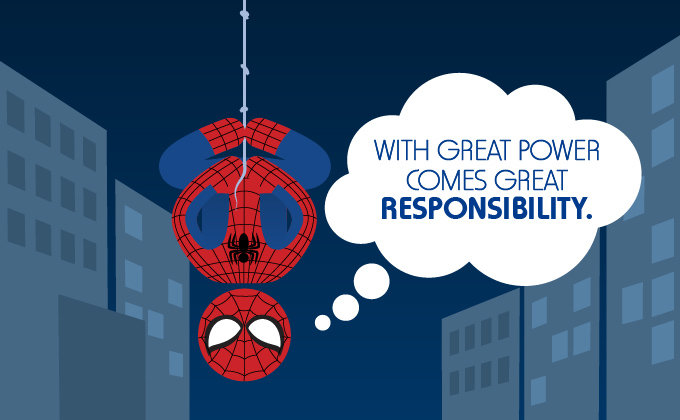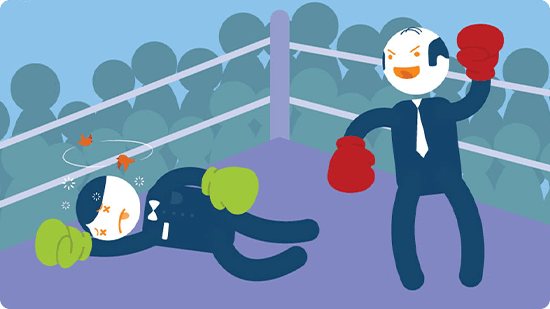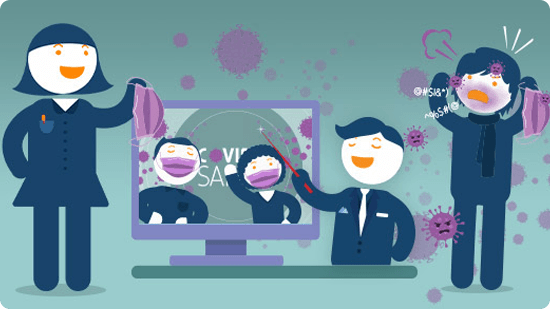Both owners of a new puppy and business managers struggle with the same thing: finding the right incentives for better performance! Unfortunately for those of us who work in the professional space, improving performance can’t be achieved through edible liver treats and scratches behind the ears.
So how on Earth can you get your staff to perform better?
Dan Pink, in a charming animated video from The Royal Society of Arts, details the fallacy behind the classic “carrot & stick” method. Rewards actually decrease performance, and brandishing punishment/fear does little more than cause anxiety to amp up and performance to plummet.
But there is an answer: the key to kick-starting staff performance is to focus on internal, personal incentivisation.

People, by nature, want to improve. They want to feel like they’re doing a good job and they want to feel like their work has purpose. – Kym Illman, Founder of Canity
Let’s take a look at a hotel clerk. An unmotivated clerk will find even slightly demanding requests by guests to be troublesome and too much effort.
Why? Because the work lacks a sense of purpose. They do not value the task they’re being asked to do; they feel a disconnect between the action of fulfilling the request and the benefit received by the actual guest.
“Why do these guests need an extra towel? What’s wrong with the three they already have?”
Juxtapose this attitude with an example from an Elite Daily article. It details a hotel guest who made a series of ridiculous requests when booking a hotel room just to see what would happen.
Here’s what he typed into the little box labelled “Special requests” during his online booking:
“Three red M&Ms on the counter. Not packages, just three single M&Ms. One for me, one for my girlfriend, and one to split if we get hungry late at night. And a picture of bacon set on the bed. I love pictures of bacon.”
Ridiculous doesn’t even describe the half of it.
Now imagine, this guy’s surprise when months later, and with the offbeat request long forgotten, he opens his hotel door to find three conspicuous, tiny chocolates on the counter and a framed picture of bacon leaning against the pillow!
The best part of the whole story is not only that the hotel staff behind this request actually did it, but that it then inspired a back and forth of more and more ridiculous requests and unbelievable hotel service. I’m talking pillow-forts, pictures of a dog in a sailor costume, towel animals… I kid you not!
Apart from making an unimaginably huge impression on this gentleman and his girlfriend, this hotel has managed to instil in its staff a true sense of pride and purpose in what they do.
They understand that by playing into the joke, they’ll be enhancing the overall experience of the guests, providing memorable stories and making their entire stay eventful and unique. Their actions have the potential to make or break the holiday of the guests. And with that sort of power, as Spider-man likes to say, comes a lot of responsibility.

A hotel assistant who doesn’t care about the experience of his/her guest or is unable to understand how their actions impact on that guest will not have any incentive to go above and beyond the bare requirements of their job description. They won’t realise the importance behind their work or have motivation to do a fantastic job.
Do your staff understand the importance of the work they do? Do they have an appreciation for the way in which their work impacts on customers/clients?
Try inspiring internal motivation, rather than trying to throw superficial and external incentives at them, by implementing these tips:
1) Hold department/staff meetings and discuss the bigger picture before assigning individual tasks.
2) Encourage and provide opportunity for staff to express ideas and work on projects of their own initiative.
3) Expect highly of them and don’t settle for work that you – and they – know is not their best.
4) Acknowledge their achievements and hard work, with the same rigour you point out their mistakes and shortcomings.
5) Listen actively to their feedback, in addition to providing your own.
So if you’re looking for the solution to ensuring your staff perform better, it may be high time you begin to look within, rather than without.













